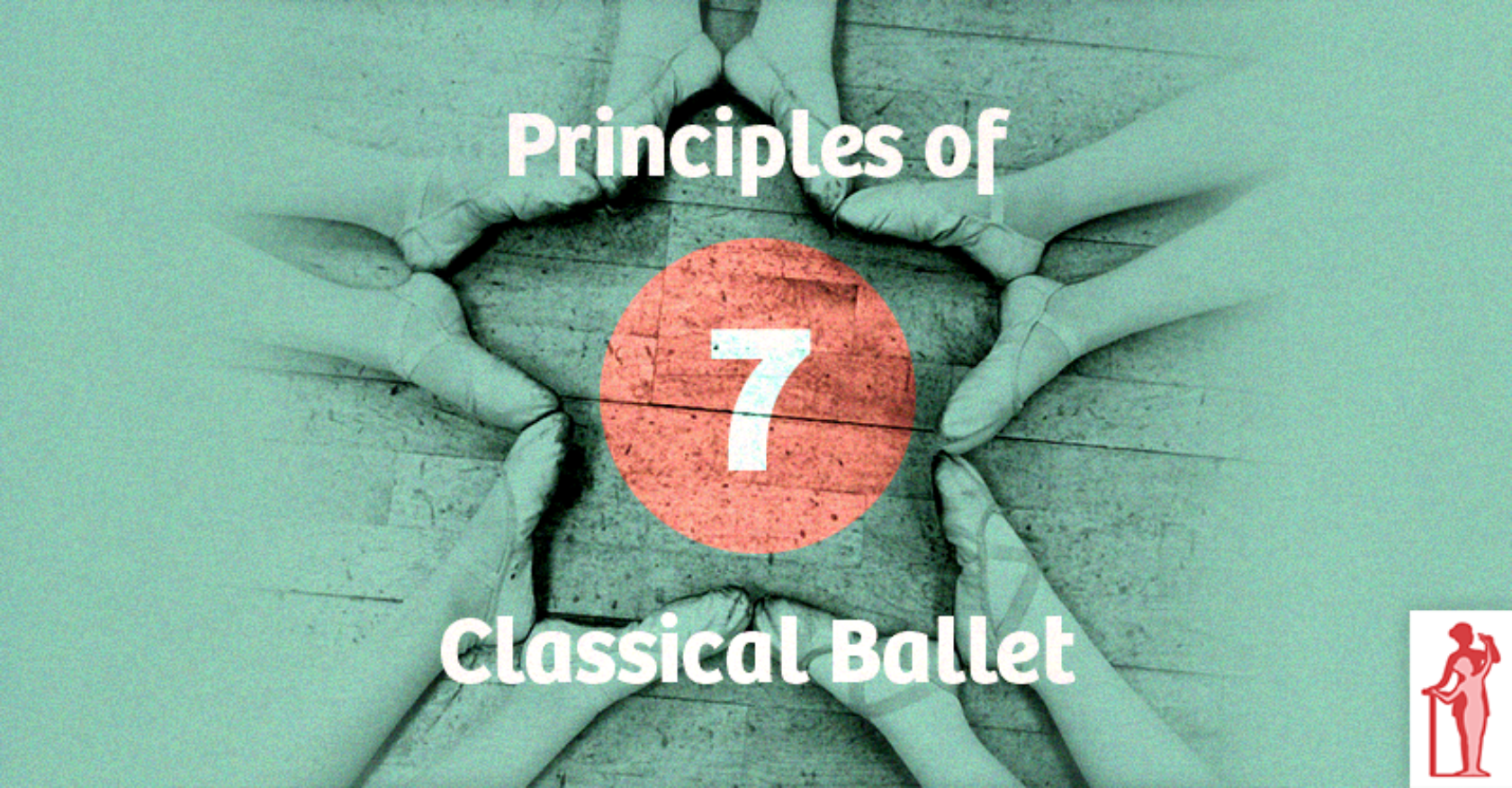
The Rules of Classical Dance were first set down definitively by John Weaver in 1723. Each generation has had its great teachers of ballet who have added insights and details to these rules and principles.
These principles are essential for the dancer to learn around the age of 9 or 10. Their learning, at this point, has progressed to a point where they can now start to grasp the big-picture concepts that are essential to their understanding of classical ballet. You will find a link at the bottom of this page for a free download of this article in PDF format for use in your ballet class.
1. Standing Correctly
- Tail down, spine up.
- Shoulders and hips face same direction. Shoulder blades flat.
- Weight balanced on the Triangle of the Foot (what is this?).
- Head erect and centered.
- Body centered over pelvis.
2. Turning Out
- Legs rotate from hip socket, feet follow.
- Knee remains in natural alignment with leg and foot, whether bent or straight.
- Ankle joints must flex and extend in line with the knee joints — no inversion or eversion.
3. Moving Correctly
- Each body part needs to be in the natural relationship to all others, and to the dancer’s center of balance.
- Eyes and head lead the movements; arms and shoulders, body, legs and feet follow.
4. Balance
- Epaulement:
- Natural — the leg in front is matched by a slight forward movement of the same shoulder.
- Opposition — the opposite shoulder moves slightly forward.
- Opposition: the leg in front is balanced by the opposite arm coming forward.
- The weight is evenly distributed throughout the body, using the least amount of energy for the balancing as is possible.
5. Classical Technique
- The Head:
- Head moves independently, and leads movements of the body.
- Eyes look front.
- Feet and Legs:
- Legs can stretch or bend.
- Heels make contact with the floor as movements start, and as they end.
- Movements pass through the center of the leg and the longitudinal center of the foot.
- Principles for the Arms:
- A continuous flow of arm movements brings life and artistry to port de bras.
- Arms do not go behind the shoulders.
- Arms are rounded for the basic positions.
- Arms do not cross the center line of the body, unless expression dictates otherwise.
- Arm movements should be sensed throughout and coordinated with the movements of the entire body.
- Principles for the Body:
- Shoulders and hips face the same direction and are level, except where use of correct muscles and body structure determines otherwise.
- The direction the hips face determines the direction the body is facing.
- Nothing must inhibit the breathing.
6. Transferring Weight
- The entire body weight must go to the new supporting leg, moving through the center of balance.
- Dancer must be completely balanced against gravity all through the movement.
- Three of the five basic jumps contain a transfer of weight while in the air: sissonnes (2 to 1), assembles (1 to 2), jetés (1 to the other). .
- Arms and feet move from one position to another through first position whenever practical.
7. Coordination
- Noverre stated: “Accuracy in classical dance is what matters, and if there is to be accuracy then there must be unity and discipline. Only then will there be coordination.”
- Another author says that if all the other principles are present, coordination will not be a problem.
- I would suggest that without a solid foundation of natural coordination, the other principles would be very difficult to perform.
Download the PDF of this Article
Related Articles
Source: “The Seven Basic Principles of Classical Ballet”, defined by Ninette de Valois, expanded by Joan Lawson. The Ballet Class, Principles and Practice, Theatre Arts Books, New York, 1984.

Related
 The Rules of Classical Dance were first set down definitively by John Weaver in 1723. Each generation has had its great teachers of ballet who have added insights and details to these rules and principles.
These principles are essential for the dancer to learn around the age of 9 or 10. Their learning, at this point, has progressed to a point where they can now start to grasp the big-picture concepts that are essential to their understanding of classical ballet. You will find a link at the bottom of this page for a free download of this article in PDF format for use in your ballet class.
The Rules of Classical Dance were first set down definitively by John Weaver in 1723. Each generation has had its great teachers of ballet who have added insights and details to these rules and principles.
These principles are essential for the dancer to learn around the age of 9 or 10. Their learning, at this point, has progressed to a point where they can now start to grasp the big-picture concepts that are essential to their understanding of classical ballet. You will find a link at the bottom of this page for a free download of this article in PDF format for use in your ballet class.


Comments
No comments for this post.
Add Comment